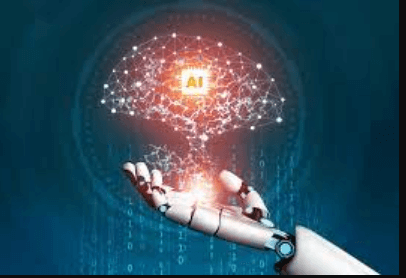Exploring the Future: Upcoming Trends in Artificial Intelligence

Introduction to AI Trends
Artificial Intelligence (AI) continues to evolve at a rapid pace, driving innovation across various industries. Staying informed about the upcoming trends in AI is crucial for businesses, technologists, and enthusiasts alike. This article delves into the most promising AI trends poised to shape the future.
Advancements in Machine Learning
Machine Learning (ML), a core part of AI, is set to see significant advancements. Expect developments in deep learning, reinforcement learning, and unsupervised learning algorithms, enhancing AI’s problem-solving capabilities. These advancements will lead to more sophisticated AI applications in fields like healthcare, finance, and customer service.
AI in Healthcare
One of the most impactful trends is the integration of AI in healthcare. AI-driven diagnostics, personalized treatment plans, and robot-assisted surgeries are becoming increasingly prevalent. The use of AI in drug discovery and epidemiology is also expected to grow, potentially revolutionizing medical research and public health. AI algorithms also play a crucial role in streamlining the drug discovery process by rapidly analyzing the vast amount of data generated through services like HCS High Content Screening.
AI and Big Data
The synergy between AI and big data will continue to be a major trend. AI algorithms are becoming more proficient at handling large datasets, leading to more accurate predictive analytics, enhanced business intelligence, and more effective data-driven decision-making processes.
Ethical AI and Governance
As AI becomes more integrated into society, the focus on ethical AI and governance will intensify. This includes developing transparent AI systems, addressing bias in AI algorithms, and ensuring AI is used responsibly. Governments and organizations are likely to introduce more regulations and ethical guidelines for AI development and use.
AI in Automation and Robotics
Automation and robotics powered by AI are set to become more advanced. This includes everything from self-driving vehicles to automated manufacturing processes. The integration of AI will make these systems more efficient, adaptable, and capable of performing complex tasks.
Conclusion
In conclusion, the realm of artificial intelligence is on the brink of several transformative trends that promise to reshape industries, enhance our daily lives, and challenge our traditional understanding of technology. From advancements in machine learning algorithms to the integration of AI in critical sectors like healthcare and education, the potential for innovation is boundless. The interplay between AI and big data will continue to unlock new insights and efficiencies, while ethical AI and governance will become increasingly important as we navigate the complexities of this evolving landscape. Automation and robotics, enhanced through AI, will redefine our approach to work, transportation, and manufacturing.
FAQs
Q: How will AI impact job markets?
A: AI is expected to both displace certain jobs and create new ones. While automation may reduce the need for manual and repetitive tasks, it also opens opportunities for jobs in AI development, maintenance, and oversight.
Q: Can AI improve environmental sustainability?
A: Yes, AI has the potential to significantly impact environmental sustainability. AI can optimize energy usage, contribute to efficient waste management, and assist in climate change research by analyzing complex environmental data.
Q: What role will AI play in education?
A: AI is set to transform education through personalized learning experiences, automated grading systems, and interactive learning tools. It can provide tailored educational content, making learning more accessible and engaging.
Q: How is AI influencing the entertainment industry?
A: In the entertainment industry, AI is being used for content personalization, special effects automation, and even in the creation of new music and artwork. It’s also enhancing user experiences in video games through more intelligent and adaptive gameplay.




